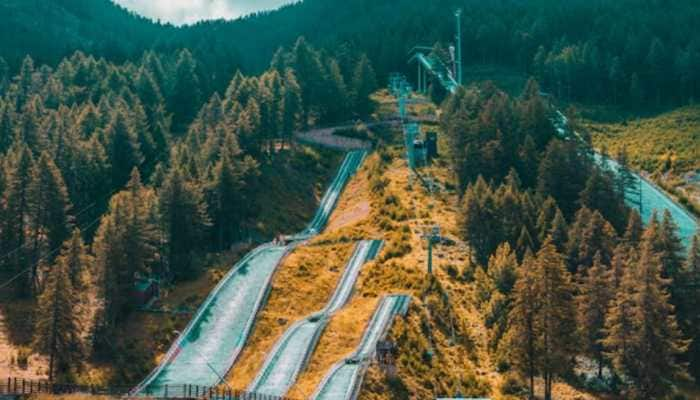DNA Exclusive: Is Chinese President Xi Jinping's rare visit to Tibetan town near Arunachal Pradesh a message to India?
Zee News Editor-in-Chief Sudhir Chaudhary on Friday (July 23) analyses if Chinese President Xi Jinping wants to send any message to New Delhi with his unexpected visit to Tibet amid the border dispute with India.
Trending Photos
)
New Delhi: In today's segment of DNA, we will analyze an international incident that took place just 17 km from the border of India and China. The incident should be known to the entire country, and is the biggest news related to the security of India today.
Chinese President Xi Jinping made a rare visit to Nyingchi, a strategically located border town close to Arunachal Pradesh, during his first visit to the politically sensitive region of Tibet where he underlined the need for 'lasting stability' and 'high-quality development' for the plateau region. Nyingchi, known as the Switzerland of Tibet, is a prefecture-level city in Tibet that is adjacent to the Arunachal Pradesh border.
#DNA : ___ __ ______ ____ _____ _____ ____@sudhirchaudhary
____ Videos ____ _____ - https://t.co/ZoADfwSi4S pic.twitter.com/TWE3HL4rpp — Zee News (@ZeeNews) July 23, 2021
China claims Arunachal Pradesh as part of South Tibet, which is firmly rejected by India. The India-China border dispute covers the 3,488-km Line of Actual Control (LAC). Xi's visit to Tibet took place amidst the current India-China military tensions in eastern Ladakh.
Jinping last visited Tibet as Vice President in 2011 to commemorate the 60th anniversary of 'the peaceful liberation of Tibet'. The last sitting Chinese President to officially visit Tibet was Jiang Zemin in 1990. During his visit to Nyingchi, Xi, visited the Nyang River Bridge to inspect the ecological preservation in the basin of the Brahmaputra river, which is called Yarlung Zangbo in the Tibetan language.
Xi Jinping is not only the President of China, but is also the Commander-in-Chief of the People's Liberation Army (PLA). Memories of Indian and Chinese soldiers engaging in bloodbaths in the Galwan Valley are still afresh in the mind of every citizen of India. And hence, the latest visit of Xi Jinping to the Tibetan city near the Indian border should be taken very seriously.
China this year has approved plans to build a huge dam over the Brahmaputra river during the current 14th Five-Year Plan, which raised concerns in the riparian states of India and Bangladesh.
The Brahmaputra is the 9th largest river in the world by volume of water. Lives of at least 130 million people of India and Bangladesh are dependent on the water of the River Brahmaputra. It is assumed that China may want to control the river water through the dam and put Indians in trouble.
Apart from this, China has also completed the construction of a 250 km long Express-Way connecting Ningchi with Lhasa. Nyingchi was in the news in June when China fully operationalised its first bullet train in Tibet, which besides improving the connectivity in the remote Himalayan region also bolstered the Chinese military's ability to move troops and weaponry to the Indian border at a much faster pace. The train connects Tibet's provincial capital Lhasa with Nyingchi. It has a designed speed of 160 km per hour and operates on a single-line electrified railway covering 435.5-km. The Lhasa-Nyingchi railway is Tibet's first electrified railway.
After visiting a city planning hall, a village and a park in Nyingchi, Xi went to Nyingchi railway station and took the train to Lhasa. He inspected the construction along the railway during the ride, the Xinhua report said. Also on Thursday, Xi went on an inspection tour of Lhasa. He visited Drepung Monastery, Barkhor Street and the Potala Palace Square in Lhasa to learn about the work on ethnic and religious affairs, the conservation of the ancient city, as well as the inheritance and protection of the Tibetan culture and chatted with residents there, it said.
That is, China has started building dams on rivers not only at a distance of 20-40 kilometers from Indian border so as to make it easier for its army to access the area via rail or road.
Stay informed on all the latest news, real-time breaking news updates, and follow all the important headlines in india news and world News on Zee News.
Live Tv







)
)
)
)
)
)
)
)
)
)
